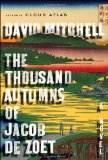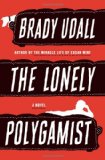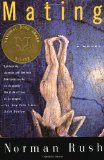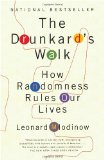Category: Book Reviews
Book Review: “Work Song” by Ivan Doig
July 8, 2010 | 1 comment { Book Reviews }The third in a series of novels following the adventures and misadventures of Morrie Morris, Ivan Doig’s newest yarn maintains his hallmark breezy, historically-rich Western style, even if the payoff isn’t terribly memorable.
Book Review: “The Thousand Autumns of Jacob de Zoet” by David Mitchell
June 28, 2010 | 1 comment { Book Reviews }In The Thousand Autumns of Jacob de Zoet, author David Mitchell seems like he’s telling us a secret. A long secret. A long, human secret about a secret land in a time shrouded by history and distance. His latest novel leaves behind the clever tricks of structure of his earlier works in favor of a purer, undistracted treatise on the human condition, nestled into a very unique historical setting.
At the dawn of the 19th century, a group of ragtag, conniving Dutchmen working for the East India Company make up the only westerners that can even steal glimpses of the forbidden Japanese Empire. From a tiny, walled island called Dejima outside of Nagasaki, the handful of Europeans trade and cheat, maximizing profits from copper, camphor and other Japanese goods while occasionally inadvertently enriching the East India Company as well.
Book Review: “The Lonely Polygamist” by Brady Udall
May 1, 2010 { Book Reviews }Brady Udall is trying to stay out of the way. His new novel is about a Fundamentalist paterfamilias with 28 kids and 4 wives, naively blundering into motley hijinx and hatching adolescent longings for the boss’ wife, backing himself into a web of lies and an imminent family showdown that builds up for most of the book’s nearly 600 pages.
In a world with so many characters and so much potential for emotional damage, Udall steers the narrative ship by removing himself from the thread: the momentum of the whirling plot creates its own little galaxy and he remains predominantly hands-off with his three main narrators (Golden, the patriarch; Rusty, the uncharismatic and totally sympathetic, ignored kid; Trish, the youngest and most, frankly, dull of the wives).
Of course, this is fiction, so beyond noting the naturalistic style of writing, claiming that Udall is not present is fallacious. But what he bends backwards to do, with eerie success, is the avoidance of even the literary equivalent of an subtle eyebrow raising: never once does the remotest sense of moral judgment leak into the book that isn’t a product of a specific character’s outlook.
Book Review: “The Lost City of Z” by David Grann
April 27, 2010 { Book Reviews }It’s an addictive genre and it is hugely popular these days: adventure meets multidisciplinary pop-sci meets biography. The survey style of writing that’s hard to resist and, when well executed, provides a page-turning synthesis of a given topic. Epitomized by Simon Winchester in his bestsellers Krakatoa and The Crack in the Edge of the World, the approachable, storytelling approach to nonfiction tends to lend itself well to journalists and generalists: here breadth works better than depth.
The Lost City of Z tells of Percy Fawcett, Victorian explorer extraordinaire, Royal Geographic Society hotshot and generally immortal geographer of the Amazonian basin. Fawcett represented the last romantic gasps of the centuries-long quest to find something like the mythical golden city of El Dorado. His life’s obsession to be the first to discover proof of an enlightened and materially affluent civilization in the unexplored jungle ended with his mysterious disappearance and the spawning of a new obsession, a shared obsession for all those who sought to uncover what happened to him during the following decades.
Book Review: “The Left Hand of Darkness” by Ursula K Le Guin
April 14, 2010 | 1 comment { Book Reviews }If you can shake off the burdens of its serious themes—gender, sexism, totalitarian political regimes—The Left Hand of Darkness is actually an interesting story, one that, as Le Guin’s own Introduction explains, pushes the envelope of the science fiction genre. The critics seemed pleased with Le Guin: the 1969 novel won both the Hugo and Nebula Awards. But does the story age well? Its treatment of feminism, as well as the thinly-veiled parallels between the planet Winter’s fantasy politics and our own earthbound nations keep peg it squarely in its origins: the late 1960s.
Book Review: “The Best American Science Writing 2009″ ed. Natalie Angier
March 25, 2010 { Book Reviews }Houghton Mifflin’s annual “Best American” series is getting far-flung. In 1915, the first Best American Short Stories anthology was published. These days, you can get a yearly dose of Best Comics, Best Crime Reporting, Best Medical Writing, Best Short Plays, et cetera. Last year I read The Best American Science and Nature Writing 2008 and was pleased. This year, I just finished reading The Best American Science Writing 2009.
Like any anthology, this one has its ups and downs. It made for a quick read and a couple of ah-ha moments, but if you miss out on it, you won’t be hopelessly left behind.
Book Review: “Mating” by Norman Rush
March 21, 2010 { Book Reviews }This is not a book for the impatient. Dense, demanding and highbrow, Norman Rush’s National Book Award-winning novel about an obsessive academic chasing idealized love in the Botswana bush of the early 1980s is both adorable and infuriating in its impenetrable cleverness.
To you, the reader, Norman Rush says “You’d better work as hard as I did.” Mating demands familiarity with all of the major liberal arts fields, from western philosophy to political theory. The vocabulary is borderline cruel, forcing me to keep a dictionary handy. Echt, adumbrate, lares, bouleversement, noetic, crescive, elenchus, divagate, apercus, anschluss, sessile—on nearly every page of the 500-page intellectual trial was a word I’d never even seen before. What was he thinking? Does he hate us? Maybe not, but you’d better be up-to-date on your classes of socialism and your grasp of Middlemarch and Latin phraseology.
Book Review: “The Drunkards Walk: How Randomness Rules our Lives” by Leonard Mlodinow
March 16, 2010 { Book Reviews }Okay, I confess. I know that A User’s Guide to the Universe edged out The Drunkard’s Walk in this poll about which science title I should read next, but in true me fashion I ended up purchasing all four books. And when the package arrived and I scanned the first pages of each, I found it entirely impossible to put Mlodinow’s fantastic surveying romp through probability, chance and statistics down. I read the first 100 pages in one sitting.
This is the kind of book I unqualifyingly recommend to everyone. Most things I read and like have audience segments. I can’t really recommend Dumas to my friend who really loves YA novels; I don’t think David would be into Jane Austen. But this book? Read it, read it, read it.
Book Review: “Sense and Sensibility” by Jane Austen
March 11, 2010 | 1 comment { Book Reviews }At this point I feel like I could easily write a computer program to write a passable Austen novel. Sure, she’s droll and she invented an entire genre; she made social commentary where social commentary was otherwise essentially impossible for someone of her gender and station.
All good. All well-written. All in all an easy and quick read. The good guy generally wins. The good girl always does. The good girl then serves to deliver slightly heavy-handed moral allegory. Not that the morals are in any way not those that we should strive for–it’s just a bit of a pretty picture.
Book Review: “Ficciones” by Jorge Luis Borges
March 5, 2010 { Book Reviews }It took me nearly a year to complete Borge’s collection of short stories called Ficciones. This compilation, cited often as the best introduction to the Argentinian writer’s oeuvre, has about 20 stories, written in the mid-20th century, that range between fantasy and satire, psychological thriller and eerie psychosis.
Borges thrives in describing off-kilter dream states. He explores sacred geometries—labyrinths, rhombuses—through which his characters move toward heroic or anti-heroic transformation. Weird stuff. Captivating, strange, difficult.
From the Archive
From the archive, a few random posts that you might not have seen before.
- Feb 5, 2007 { Life }
Wintry Lower South Falls - Jun 9, 2009 { Crohn's, Life }
Always an Adventure - Jun 4, 2008 { Books & Learning }
Books: Kids' Lit? Yes/No: Discuss - Aug 28, 2008 { Letterpress }
Letterpress: Committed to Caslon










